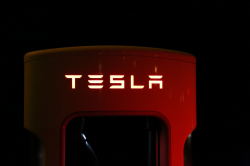
— A Tesla driving range lawsuit is over for now after a federal judge agreed with Tesla regarding arbitration agreements signed by the plaintiffs who filed two class action lawsuits.
Those two driving range lawsuits include James Porter v. Tesla, and Samuel Van Diest v. Tesla, both class actions which allege Tesla Model 3, Model S, Model Y and Model X vehicles depend on false advertising.
According to the Tesla class action lawsuit, Tesla driving range statements in advertisements are wrong and may be 26% more than what the vehicles can achieve.
The driving range lawsuit was filed after a 2023 Reuters report about how Tesla allegedly did everything it could to conceal thousands of complaints about the driving range.
Owners assert Tesla simply said the vehicles were working as intended, allegedly telling customers the batteries and vehicles were not defective.
The lawsuit alleges Tesla customers are told not to charge the batteries to 100% which drastically reduces the driving range.
A driver will allegedly lose hundreds of miles of electric driving range by limiting the battery charge to 80%.
Tesla Driving Range Lawsuit: Motion to Compel Arbitration
According to Tesla in a motion to compel arbitration, the plaintiffs who sued must take their individual claims to an arbitrator, not to a judge or jury.
Tesla told Judge Yvonne Gonzalez Rogers each plaintiff signed an arbitration agreement when they purchased their vehicle and none of the named plaintiffs opted out when they signed the order agreements.
Tesla Agreement to Arbitrate
"If [your dispute] is not resolved within 60 days, you agree that any dispute arising out of or relating to any aspect of the relationship between you and Tesla will not be decided by a judge or jury but instead by a single arbitrator in an arbitration administered by the American Arbitration Association (AAA) under its Consumer Arbitration Rules. . . . If a court or arbitrator decides that any part of this agreement to arbitrate cannot be enforced as to a particular claim for relief or remedy, then that claim or remedy (and only that claim or remedy) must be brought in court and any other claims must be arbitrated."
An important clause of the agreement specifically mentions class action lawsuits.
"The arbitrator cannot hear class or representative claims or requests for relief on behalf of others purchasing or leasing Tesla vehicles. In other words, you and Tesla may bring claims against the other only in your or its individual capacity and not as a plaintiff or class member in any class or representative action."
And regarding opting out:
"You may opt out of arbitration within 30 days after signing this Agreement by sending a letter to: Tesla, Inc.; P.O. Box 15430; Fremont, CA 94539-7970, stating your name, Vehicle Identification Number, and intent to opt out of the arbitration provision. If you do not opt out, this agreement to arbitrate overrides any different arbitration agreement between us, including any arbitration agreement in a lease or finance contract."
At one point, the plaintiffs also claimed the arbitration agreements should not apply to them because the plaintiffs are only "unsophisticated parties," but arbitration agreements are “between sophisticated parties.”
The judge didn't buy that argument.
Arbitration rulings can be all over the place because one judge can read a law and reach one conclusion, while a different judge can read the identical law and reach a completely different conclusion.
The judge admitted this when she said this about a provision of the arbitration agreement:
"Courts in this district have come to opposite conclusions when analyzing this exact Provision."
However, according to Judge Rogers, Tesla's motion to compel arbitration is granted as to all claims.
The two Tesla driving range class action lawsuits were filed by James Porter, Bryan Perez, Dro Esraeili Estepanian, Dennis Romanez, Artem Kupriiets, Neil Kreuzer, Wafay Nadir, Kenneth Brown, Samuel Van Diest and Sergey Khalikulov.
The Tesla driving range lawsuit was filed in the U.S. District Court for the Northern District of California.
The plaintiffs are represented by Milberg Coleman Bryson Phillips Grossman.




